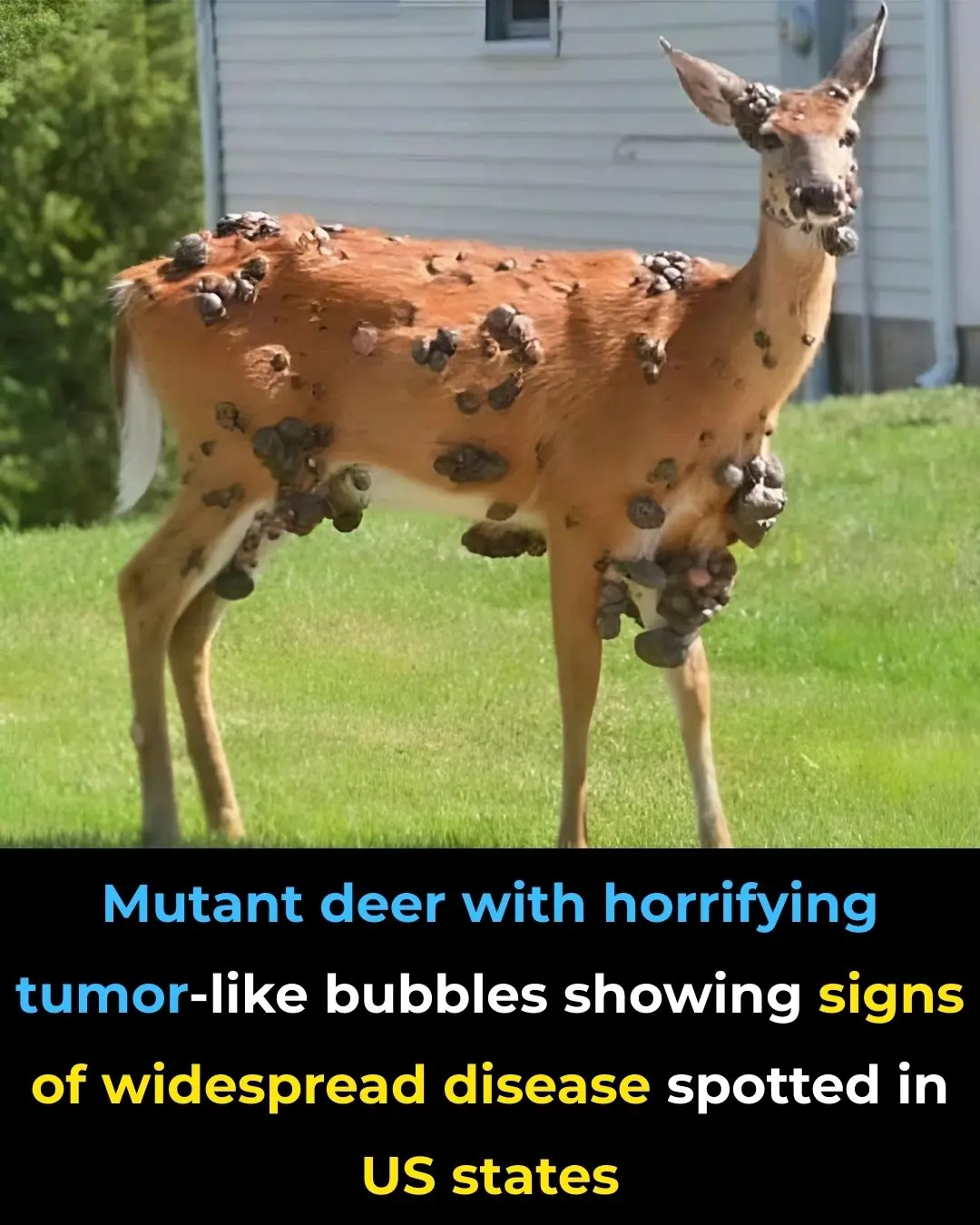
'Frankenstein' creature that hasn't had s3x in 80,000,000 years in almost completely indestructible
If thoughts about a lackluster sex life have been bothering you, spare a moment for a species that has entirely abstained from sexual activity for an astonishing 80 million years.
While tech mogul Elon Musk and others continue to emphasize that the natural purpose of humans is to propagate the species through reproduction, the story is far more complicated for one microscopic cousin of the flatworm: the bdelloid rotifer. This tiny creature has completely abandoned sexual reproduction, thriving in ways that challenge our conventional understanding of evolution.
Asexual reproduction isn’t entirely rare in the animal kingdom. Certain starfish, jellyfish, and even Komodo dragons can reproduce without mating. However, these cases pale in comparison to the bdelloid rotifer, which has embraced celibacy for tens of millions of years. Every one of the 450 known species of bdelloid rotifers consists entirely of females—no males have ever been documented in any population.
Bdelloids are hardy creatures, often inhabiting puddles, moss, and even sewage treatment tanks. In these harsh environments, they employ a remarkable survival strategy: they incorporate DNA from other species into their own genomes. This horizontal gene transfer allows them to maintain genetic diversity without sexual reproduction, a feat that most asexual organisms fail to achieve. Typically, species that reproduce solely asexually eventually hit an evolutionary dead end, succumbing to parasites or environmental changes due to lack of variation. Bdelloids, however, have defied this pattern, flourishing for tens of millions of years.
According to Discover Wildlife, bdelloid rotifers can even be revived after long dormancy. In 2021, specimens were resurrected from Siberian permafrost where they had remained inactive for more than 24,000 years. Upon thawing, these microscopic creatures resumed their normal life processes, including reproduction through asexual means. This remarkable resilience suggests that their DNA repair systems are among the most efficient in the microscopic world, helping them outlast the typical lifespan of most asexual species, which rarely exceeds 100,000 generations.
These so-called "evolutionary scoundrels" sustain themselves on a diet of dead bacteria, algae, and protozoans, scraping nutrients from their inhospitable environments. This lifestyle not only provides sustenance but also appears to facilitate the horizontal gene transfer that is key to their survival. Up to 10% of their active genes are derived from other species, earning them the nickname “a Frankenstein collage of foreign DNA from more than 500 species.” Scientists speculate that this borrowed genetic material enhances their ability to resist extreme environmental stresses, including drought, radiation, and desiccation.
When bdelloid rotifers encounter drying water sources, their bodies mummify, entering a stasis-like state. Dehydration, which damages DNA similarly to radiation, triggers their remarkable DNA repair mechanisms. By shattering and reconstructing their genome, bdelloids effectively achieve the genetic shuffling benefits normally provided by sexual reproduction—without ever needing a mate.

Bdelloid rotifers continue to prove they don't need men to survive (Eduardo Baena / Getty)
Furthermore, bdelloid rotifers produce their own unique antibiotics, fending off fungal infections with genes stolen from bacteria. This capability makes them a fascinating subject for research in next-generation antibiotics and potential biotechnological applications. By integrating vast amounts of foreign DNA into their systems, they not only survive but thrive under conditions that would obliterate most other microscopic species.
Essentially, while sexual reproduction has long been considered essential for genomic innovation and survival, bdelloid rotifers have proven that evolution can take alternative paths. Their ingenious use of horizontal gene transfer and extreme resilience makes them one of nature’s most extraordinary examples of adaptation. So, in the grand contest of survival and evolution, these female-only rotifers continue to show that you don’t need males—or sex—to dominate your ecosystem. Keep thriving, bdelloids—you’ve truly got it all figured out.
News in the same category


Mutant deer with horrifying tumor-like bubbles showing signs of widespread disease spotted in US states

Angelina Jolie’s ‘Zombie Lookalike’ Revealed As She Leaves Jail After Fooling Everyone

Cancer patients in England to be first in Europe to be offered immunotherapy jab

US assassin caught on CCTV faces lengthy prison sentence over failed murder plot

YouTuber shares shocking revenue earned from 1 million views on YouTube shorts

Trump makes worrying quip during Zelenskyy meeting that leaves many concerned over rising WW3 fears

Investigation into horrifying death of streamer 'tortured' for ten days before dying on camera

This New Eye Drops Could Clear Cataracts Without Surgery, Giving Millions a Safer Way to Restore Sight

Woman issues warning to MacBook users after simple mistake leaves her screen destroyed

Man trained like a professional athlete for 30 days and saw crazy changes to his body take place

ChatGPT CEO Warns: What You Tell AI Could Be Used as Evidence in Court

New Drug That Protects the Blood-Brain Barrier Shows Promise Against Alzheimer’s Disease

Firefighters Reveal the Worst Place to Keep Your Phone

Shocking new study reveals how long it takes to regain weight after stopping Ozempic

Elon Musk's estranged daughter shares her iconic reaction to 'woke mind virus tweet' claiming she was dead

Homeowner finds chilling note with terrifying warning left by previous owner after moving into new house

People are just discovering what 'proper poop position' is after seeing bizarre toilet design
News Post

You Can Adopt Puppies That Were ‘Too Friendly’ to Become Police Dogs

A Nigerian Scientist Developed a High-Tech Cancer-Detecting Goggles That Help Surgeons Spot Cancer Cells More Accurately.

Final straw that led to billionaire CEO's desperate escape from Japan inside 3ft box

Mutant deer with horrifying tumor-like bubbles showing signs of widespread disease spotted in US states

Scientists discover ultra-massive 'blob' in space with a mass of 36,000,000,000 suns

When a Washing Machine Shows 7kg, 8kg, or 10kg, Is That the Weight of Dry or Wet Clothes? The Real Meaning Behind These Numbers Is Something That Few People Know

Place a Bowl of Salt in the Fridge: A Small Trick, But So Effective — I Regret Not Knowing It for 30 Years

If Your White Walls Are Dirty, Don’t Clean Them with Water — Use This Trick for a Few Minutes, and Your Wall Will Be as Clean as New

Bubble Wrap Has 4 Uses 'As Valuable as Gold' — But Many People Don’t Know and Hastily Throw It Away

3 Ways to Prevent Snakes from Entering Your House: Protect Your Family

5 Household Devices That Consume More Electricity Than an Air Conditioner: Unplug Them to Avoid Skyrocketing Bills

How a Common Kitchen Powder Can Help Your Plants Thrive and Bloom

How to Effectively Clean Black Mold from Your Refrigerator Gasket in Just 5 Minutes

10 Early Warning Signs Your Blood Sugar Is Way Too High

If Your Legs Cramp at Night You Need to Know This Immediately

Warning Signs Your Body Is Full of Parasites and How to Effectively Eliminate Them Naturally

Warning Signs of a Parasite Infection And How to Eliminate It for Good

What Raw Garlic Can Do for Your Health Is Truly Unbelievable
